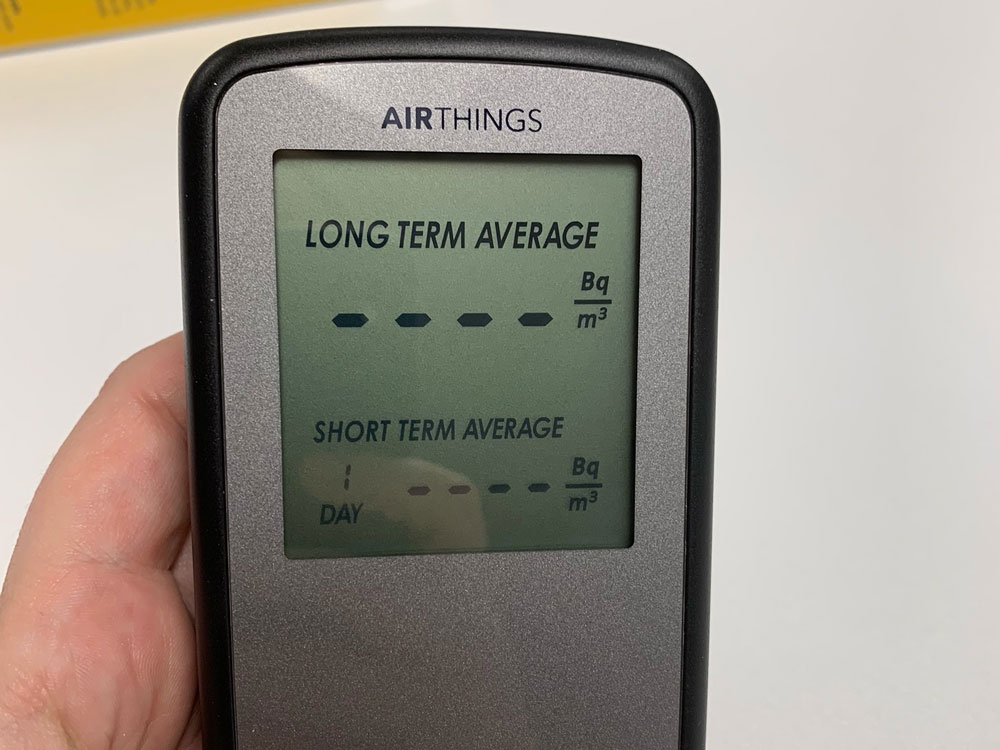WELLINGTON COUNTY – Radon detectors will soon be joining the supply of electronics available for loaning out to county library card holders.
According to Health Canada, radon gas, a natural gas resulting from the breakdown of uranium in soil, is the leading cause of lung cancer in non-smokers.
The radioactive gas is present in all homes, seeping in through windows, foundation cracks, sump pumps, fittings, and well water. And if radon accumulates, it can present a serious health risk.
Radon detectors weren’t on information services librarian Jessica Veldman’s radar, she said, until a local doctor reached out to suggest looking into them.
The county library system has purchased 10 units at around half of the typical public-facing cost from the Norway-based company Airthings, putting the price tag of the detectors somewhere around the $1,200 mark.
“We don’t know what the interest will be and with any new technology that we introduce to our circulating collection, we tend to offer fewer first and then buy more based on demand,” Veldman said.
The radon detectors are simple and easy to use, says Veldman, who is testing a unit at her residence.
Operating on a long-lasting battery, the detectors are constantly taking air readings, displayed on a screen. There’s no taking readings or samples and having to wait for results to come back.
“It automatically calculates the short-term average and then a long-term average,” Veldman explained.
The long-term average is the important number users will be looking for to determine if radon levels are in excess of what Health Canada deems safe.
A value above 200 Becquerels per cubic metre, a measure of radiation emission per second, is a cause for concern.
For those with high levels of the gas in their residences, the federal agency recommends hiring a Canadian National Radon Proficiency Program-certified pro to look at options to reduce radon levels in the home.
The most common method for reducing radon accumulation, according to Health Canada, is an installed system which literally sucks the air out from beneath a home’s foundation, funnelling it into outdoor air, where it dilutes and doesn’t present as high of a risk.
The detectors are being packed into take-home kits with operating instructions and information from Health Canada. Loans will be for three-week periods, during which people should leave the unit to take readings from the lowest livable space in the home.
“Part of the service that public libraries provide is offering things to people who may not be able to afford it themselves; it’s trying to level that playing field for everybody,” Veldman said of the library’s sizable technology catalogue.
Loans for detectors can be made over phone, online and in-person for pickup at any library, the same way their GoPros, Chromebooks, iPads, WiFi hotspots, gaming consoles, and other tech are loaned out.
There is no firm release date for the detectors to be available, but Veldman said she expects early October.




